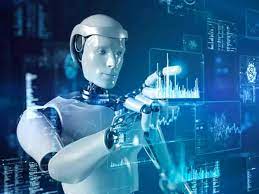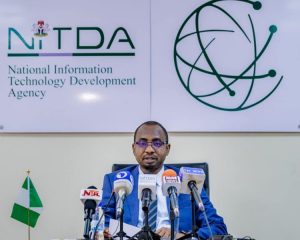Why artificial intelligence poses greater threat than climate change, says expert

Artificial intelligence may pose a “more urgent” threat to humanity than climate change, according to one of Google’s former top computer scientists.
Geoffrey Hinton, known as the “Godfather of AI”, resigned from Google earlier this year to “speak freely” about the risks posed by increasingly intelligent machines.
Mr Hinton, 75, has now warned powerful AI poses a more immediate to humanity risk than global warming.
The computer science professor said: “I wouldn’t like to devalue climate change. I wouldn’t like to say, ‘you shouldn’t worry about climate change’. That’s a huge risk too.
“But I think this might end up being more urgent.”
Speaking to the Reuters news agency, Mr Hinton said: “With climate change, it’s very easy to recommend what you should do: you just stop burning carbon. If you do that, eventually things will be okay. For this it’s not at all clear what you should do.”
It comes after technology leaders including Sam Altman, the boss of ChatGPT developer OpenAI, as well as the chief executives of Google and Microsoft were summoned to the White House to discuss the risks of AI recently.
The London-born computing expert helped pioneer so-called “machine learning” techniques in the 1980s and won the prestigious Turing Award in 2018.
These techniques underpin a powerful new wave of AI bots, such as ChatGPT, a chatbot that can provide convincingly-human sounding responses. Google is also building its own powerful bots, as are tech giants Facebook and Microsoft.
The hope is these machines could accelerate the work of millions of people and eliminate menial office tasks.
These digital agents are trained on millions of pages of text from the whole internet and hundreds of thousands of books.
The models can also absorb millions of pictures and videos to generate lifelike, but fake, images, films and music.
Technologists are increasingly wary these new bots could give rise to the emergence of a so-called “artificial general intelligence” that can surpass human intellect. There are also fears they could unleash a new wave of digitally created disinformation.
In an interview with the New York Times earlier last week, Mr Hinton warned that there was a risk that “bad actors” could use such powerful AI for “bad things”, and that machines that can improve themselves or set their own goals without human supervision pose an existential risk.
He has cautioned of the catastrophic impact such technology could have uncontrolled in the hands of world leaders such as Vladimir Putin and warned it may replace vast numbers of jobs.








